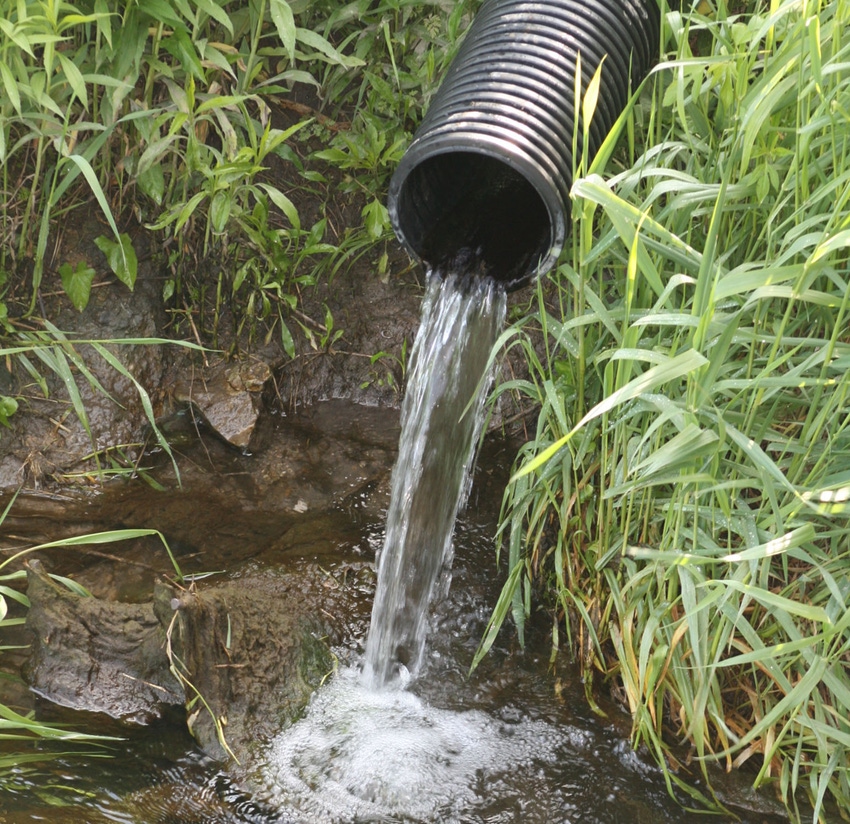Iowa's pork industry applauds state court ruling against Des Moines Water Works, while also furthering it's commitment to the environment with a new cost-share partnership.
January 27, 2017

Source: National Pork Producers Council and Iowa Pork Producers Association
In a case with potential implications for other farm states, the Iowa Supreme Court this week ruled that state law immunizes county drainage districts from legal claims sought by the Des Moines Water Works, another government entity.
The drainage districts were instituted in Iowa to allow wetlands to be turned into productive farmland by moving water off of fields. The DMMW, which provides drinking water to about half a million people, sued the drainage districts of Buena Vista, Calhoun and Sac counties, claiming they allowed nitrates from agricultural lands to get into the Raccoon and Des Moines rivers. The DMWW is required to meet certain federal water-quality standards, including a maximum level of nitrates.
Relying on 100 years of Iowa law, the state high court ruled that the drainage districts have “a limited, targeted role — to facilitate the drainage of farmland in order to make it more productive” — and are, therefore, immune from damages claims and from injunctive relief claims other than ones to compel it to perform a statutory duty.
The court’s decision, however, did not deal with claims the DMWW has brought under the federal Clean Water Act or the state’s water pollution control law. Those are being considered by the U.S. District Court for the Northern District of Iowa.
The Iowa Pork Producers Association weighed in on the state Supreme Court’s decision in a statement issued Jan. 27.
“Today’s Iowa Supreme Court decision finding drainage districts have unqualified immunity from Des Moines Waterworks lawsuit claims is critical to the farmers in the three Iowa county drainage districts. Although not the final decision in the federal court lawsuit, this decision should have a significant impact on the remaining Iowa and federal Clean Water Act claims. We will continue to closely review the decision and the impacts moving forward on Iowa farmers’ livelihoods.
“Iowa’s pig farmers must adhere to several state regulations that are designed to protect the environment that we all live and work in. The pork industry can demonstrate decades of continuous improvement relating to environmental stewardship and the supreme court’s opinion aside, IPPA will continue to focus on coordinated and collaborative efforts to continue driving improvement.
“The association has always promoted environmental stewardship and has honored a pig farmer each of the past 10 years for environmental excellence. IPPA has invested more than $1.5 million in environmental programs and water quality improvement since 2013 alone.”
Furthering the IPPA’s commitment to the environment, on Jan. 25 the association announced a $25,000 cost-share partnership with the Iowa Department of Agriculture and Land Stewardship to assist pig farmers in installing saturated buffers and bio-reactors on their farm land.
Through this program, IPPA will provide up to $25,000, throughout the next year, to offset up to 50% of costs for pig farmers to install saturated buffers or bioreactors on their farm land. Sites will be selected based on greatest opportunity for nitrate reduction and be geographically dispersed throughout the state to aid in education and demonstration opportunities.
Pig farmers interested in the program can submit basic farm information for project consideration at www.surveygizmo.com/s3/3108271/IDALS-EOF-Funding-Application. For more information, contact Tyler Bettin at IPPA at 800-372-7675 or [email protected] or Matt Lechtenberg at IDALS at 515-281-3857 or [email protected].
IPPA has also established policy fully supporting the Iowa Nutrient Reduction Strategy and is working in collaboration with the Iowa corn and soybean associations and other ag partners to enhance water quality initiative efforts in the state.
You May Also Like



